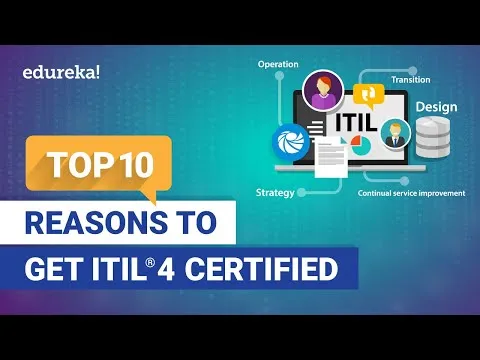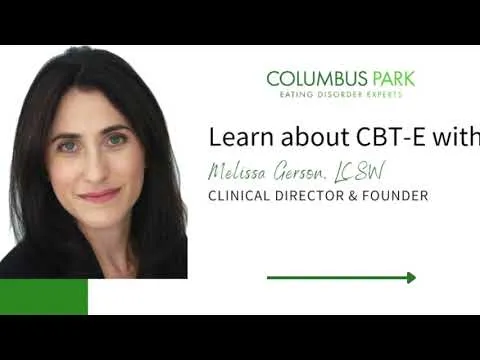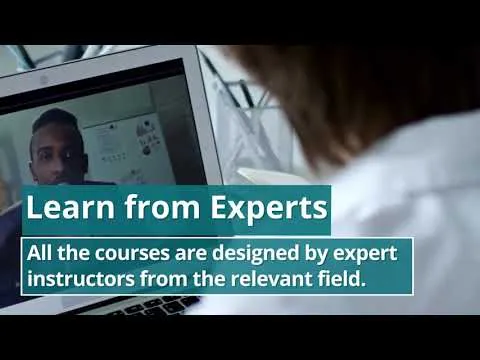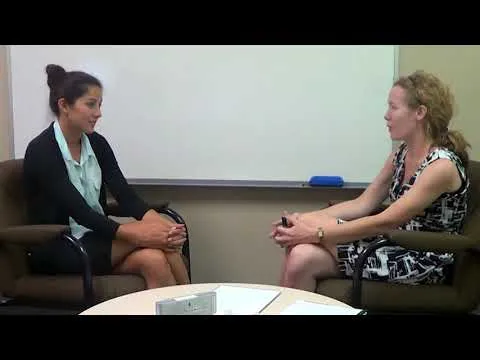
Enhanced Cognitive Behavioral Therapy (CBT-E) for Anorexia 
Discover the power of Enhanced Cognitive Behavioral Therapy (CBT-E) for Anorexia in this informative video course. Join University of Central Oklahoma graduate students Gabriel Atheron and Samantha Dawes as they delve into what CBT-E is, what to expect during the therapy, how it works, and where it can take place. This engaging video, created as part of Dr. Caleb Lack's "Child and Adolescent Counseling" class, offers valuable insights into this effective treatment approach. Don't miss this opportunity to enhance your understanding of CBT-E and its potential to transform lives. Click now to enroll! ▼
ADVERTISEMENT
Course Feature
![]() Cost:
Cost:
Free
![]() Provider:
Provider:
Youtube
![]() Certificate:
Certificate:
No Information
![]() Language:
Language:
English
![]() Start Date:
Start Date:
2021-04-20 00:00:00
Course Overview
❗The content presented here is sourced directly from Youtube platform. For comprehensive course details, including enrollment information, simply click on the 'Go to class' link on our website.
Updated in [September 26th, 2023]
We considered the value of this course from many aspects, and finally summarized it for you from two aspects: skills and knowledge, and the people who benefit from it:
(Please note that our content is optimized through artificial intelligence tools and carefully reviewed by our editorial staff.)
What skills and knowledge will you acquire during this course?During the Enhanced Cognitive Behavioral Therapy (CBT-E) for Anorexia course, students will acquire the following skills and knowledge:
1. Understanding of Anorexia: Students will gain a comprehensive understanding of anorexia, including its causes, symptoms, and impact on individuals' lives.
2. Cognitive Behavioral Therapy (CBT): Students will learn the principles and techniques of CBT, a widely used therapeutic approach for treating various mental health disorders, including anorexia.
3. Enhanced CBT-E: Students will specifically focus on Enhanced CBT-E, a modified version of CBT designed specifically for treating anorexia. They will learn the unique strategies and interventions used in this approach.
4. Assessment and Diagnosis: Students will develop skills in assessing and diagnosing anorexia, including understanding the diagnostic criteria and conducting thorough assessments.
5. Treatment Planning: Students will learn how to develop individualized treatment plans for clients with anorexia, considering their specific needs, goals, and challenges.
6. Behavioral Change Techniques: Students will acquire knowledge and skills in implementing behavioral change techniques to help clients with anorexia modify their maladaptive behaviors and develop healthier habits.
7. Cognitive Restructuring: Students will learn how to identify and challenge negative thought patterns and beliefs related to body image, food, and weight, and help clients develop more adaptive and positive thinking.
8. Psychoeducation: Students will gain knowledge in providing psychoeducation to clients and their families about anorexia, its causes, and the treatment process, helping them understand and actively participate in the recovery journey.
9. Relapse Prevention: Students will learn strategies to help clients prevent relapse and maintain their progress after completing the therapy, including identifying triggers, developing coping skills, and building a support network.
10. Cultural Competence: Students will develop cultural competence in working with diverse populations, understanding the unique cultural factors that may influence the development and treatment of anorexia.
Who will benefit from this course?
This course on Enhanced Cognitive Behavioral Therapy (CBT-E) for Anorexia will benefit individuals who are interested in or working in the field of mental health, specifically in the area of eating disorders.
1. Mental health professionals: Psychologists, therapists, counselors, and psychiatrists who specialize in treating eating disorders can benefit from this course. It provides them with a comprehensive understanding of CBT-E, a highly effective treatment approach for anorexia. They can learn new techniques and strategies to apply in their practice, enhancing their ability to help individuals with anorexia.
2. Students pursuing a career in mental health: Graduate students studying psychology, counseling, or related fields can benefit from this course. It offers them valuable insights into the treatment of anorexia and equips them with evidence-based techniques to support their future clients.
3. Researchers and academics: Professionals involved in research or teaching in the field of eating disorders can benefit from this course. It provides them with an in-depth understanding of CBT-E, allowing them to contribute to the existing body of knowledge and potentially develop new interventions.
4. Individuals with anorexia and their families: While this course is not specifically designed for individuals with anorexia or their families, it indirectly benefits them. Mental health professionals who have completed this course will be better equipped to provide effective treatment and support to individuals with anorexia and their families, leading to improved outcomes and recovery.
Course Provider

Provider Youtube's Stats at AZClass
Discussion and Reviews
0.0 (Based on 0 reviews)
Explore Similar Online Courses

Landscape Photography Course in Composition - Form & Flow

Top 10 Reasons to Get ITIL 4 Certified In 2024 Benefits of ITIL 4 ITIL Training Edureka

Python for Informatics: Exploring Information

Social Network Analysis

Introduction to Systematic Review and Meta-Analysis

The Analytics Edge

DCO042 - Python For Informatics

Causal Diagrams: Draw Your Assumptions Before Your Conclusions

Whole genome sequencing of bacterial genomes - tools and applications

Learn about CBT-E

Cognitive Behavioural Therapy CBT Online Course


Start your review of Enhanced Cognitive Behavioral Therapy (CBT-E) for Anorexia